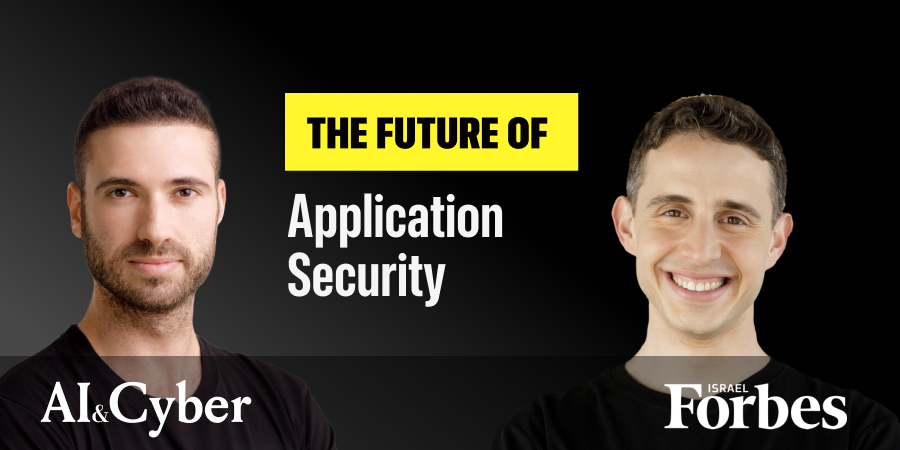Cybersecurity is no longer just about preventing breaches; it’s now fundamentally about enabling innovation safely in a rapidly evolving technological landscape. As AI becomes deeply embedded in every aspect of our digital lives, from microservices to complex digital platforms, cybersecurity needs a fresh perspective. Daniel Shechter, CEO of Miggo Security, Cybersecurity leader at 8200, and Havazalot program alumni, offers precisely that perspective. I recently sat down with Daniel to explore how AI is reshaping cybersecurity, particularly at the application level.
Daniel Shechter uniquely bridges worlds: from playing jazz saxophone in high school, to elite military intelligence, McKinsey consulting, and now leading a pioneering cybersecurity firm. His career demonstrates a rare ability to simplify complex problems—a skill urgently needed as cybersecurity and AI converge.
In our conversation, Daniel highlighted an often overlooked area in cybersecurity: the application layer. Historically, app security focused on static code or endpoint solutions. But with microservices architectures becoming standard, traditional security methods no longer suffice. Daniel explained, “Endpoints are losing many functionalities over time, shifting largely to SaaS in the backend. That’s what we protect.” This observation underscores a pivotal shift, where application security moves beyond endpoint defense into a comprehensive observability-driven approach.
As I reflected on Daniel’s insights, I realized how significant this shift is for our understanding of cybersecurity’s future. Microservices and AI-driven applications are introducing complexity previously unimaginable. Attack surfaces are multiplying, and traditional security solutions are struggling to keep pace. Daniel likened modern digital platforms to intricate water networks, where threats can seamlessly navigate unnoticed: “Modern apps are like complex water networks; threats could flow unnoticed. We realized a holistic observability-driven approach was essential—thus, ‘application detection and response.'”
The threat landscape, fueled by generative AI, is evolving at breakneck speed. Daniel shared staggering statistics illustrating this transformation: “AWS’s CISO reported that attacks on Amazon grew threefold to fourfold since generative AI tools emerged.” Moreover, he pointed out how quickly attackers now weaponize publicly disclosed vulnerabilities: from 100 days to just 22 minutes in recent years. The implications are clear—today’s threats require faster, smarter, and more proactive cybersecurity responses.
From my perspective, cybersecurity’s primary role now is enabling innovation securely rather than merely blocking threats. Daniel emphasized this, noting, “We’re here to facilitate innovation securely, responding dynamically as threats evolve, especially in this age of rapid AI adoption and increasingly sophisticated attacks.”
AI’s integration into cybersecurity, particularly at the application layer, calls for a significant paradigm shift. We must embrace adaptive security strategies capable of dynamically responding to threats as they evolve in real-time. Daniel’s approach, characterized by deep tracing and comprehensive observability, exemplifies this shift.
Looking ahead, I believe the cybersecurity industry must quickly adapt. Solutions need to be designed with flexibility at their core, ready to adjust as quickly as threats evolve. Organizations failing to recognize this shift risk exposing themselves to vulnerabilities that traditional methods simply can’t address.
My conversation with Daniel Shechter reinforced my belief that we’re entering a transformative era in cybersecurity, one driven by the sophisticated capabilities of AI. Security solutions must now go beyond mere protection and proactively support technological advancement and innovation.
In this rapidly evolving landscape, it’s not enough to keep up—we must anticipate, adapt, and evolve faster than the threats we face. Companies that prioritize adaptive, AI-driven cybersecurity will not only mitigate risks effectively but will also lead in innovation and growth.
We must embrace AI-driven adaptive cybersecurity now or risk falling behind in innovation and protection.
Michael Matias is the CEO and Co-Founder of Clarity, an AI-powered cybersecurity startup backed by venture capital firms including Bessemer Venture Partners and Walden Catalyst. Clarity develops advanced AI technologies protecting organizations from sophisticated phishing attacks and AI-generated social engineering threats, including deepfakes. Before founding Clarity, Matias studied Computer Science with a specialization in AI at Stanford University and led cybersecurity teams in Unit 8200 of the Israel Defense Forces. Forbes Israel recognized him early on, naming him to the exclusive 18Under18 list in 2013 and the Forbes 30Under30 list thereafter. Matias authored the book Age is Only an Int and hosts the podcast 20MinuteLeaders.





